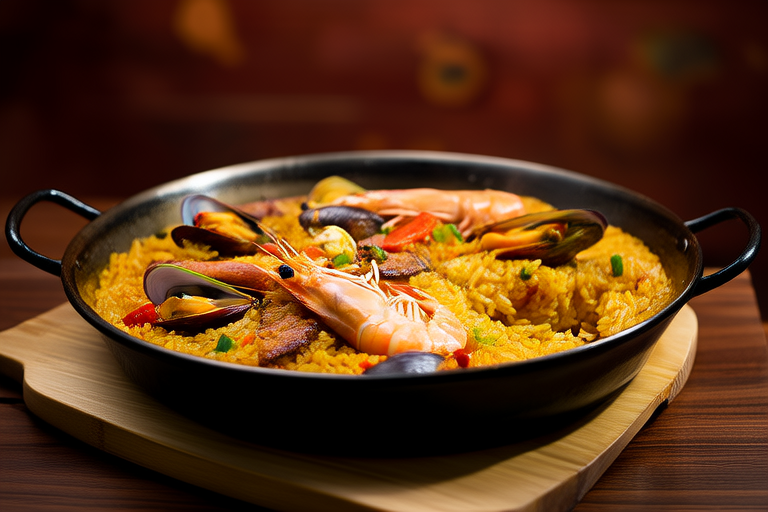Gastronomic Getaways: How Travel Enriches Our Palates

“`html
Gastronomic Getaways: How Travel Enriches Our Palates
Travel is more than just a journey from one place to another; it is an adventure that enriches our senses, broadens our horizons, and deepens our understanding of the world. One of the most delightful aspects of travel is the opportunity to explore new and exciting culinary landscapes. Gastronomic getaways allow us to delve into the heart of different cultures through their unique and often mouth-watering cuisines. This article explores how travel enriches our palates by offering unforgettable culinary experiences that enhance our understanding and appreciation of diverse culinary traditions.
Exploring Local Cuisines
One of the greatest joys of travel is discovering and savoring authentic local dishes that might not be available in one’s home country. From the smoky, savory flavors of Mexican mole to the delicate, umami-rich complexity of Japanese sushi, each region offers a distinct culinary identity. By venturing beyond the tourist traps and into the local markets, street food stalls, and family-owned restaurants, travelers can truly immerse themselves in the culinary culture of a place.
For instance, in Spain, tapas are more than just small plates of food; they represent a social ritual where friends gather over drinks and share bites. In Japan, sushi is an art form, with chefs meticulously preparing fresh fish and seaweed. And in Mexico, tacos are not just a meal but a way of life, with countless variations depending on the region. These dishes are deeply rooted in the history and traditions of their respective cultures, making them essential experiences for any traveler.
Cultural Immersion Through Food
Dining in different countries provides profound insights into their history, traditions, and social customs. Food often plays a central role in celebrations, festivals, and daily life. For example, during Diwali in India, families come together to prepare sweets like laddu and barfi, which symbolize the sweetness of life. Similarly, in Italy, Christmas Eve feasts feature the traditional seven fishes, a custom that dates back centuries.
Food also reflects the values and beliefs of a society. In many Middle Eastern countries, sharing a communal platter is not just a gesture of hospitality but a way to strengthen bonds. In Japan, tea ceremonies are a meditative practice that emphasizes mindfulness and respect. These practices offer travelers a window into the deeper cultural nuances of a place, enhancing their overall experience.
Anecdotes and personal stories can bring these experiences to life. Imagine sitting at a tiny café in Paris, sipping on a steaming cup of café au lait while watching the world go by. Or picture yourself in a bustling market in Thailand, where the air is filled with the aromas of grilled meats and fragrant spices. These moments create lasting impressions and deepen the traveler’s connection to a place.
Developing Taste Buds
Exposure to new flavors, textures, and cooking techniques can significantly expand one’s palate. The first bite of a perfectly ripe mango in Thailand, the crunch of fresh guacamole in Mexico, or the smoothness of a well-prepared risotto in Italy can all be transformative experiences. Each new ingredient and spice introduces a new dimension to the culinary landscape, broadening our understanding of what is possible in the kitchen.
The sensory experience of trying unfamiliar ingredients and spices is one of the most rewarding aspects of culinary exploration. The heat of a chili pepper, the earthiness of miso paste, or the floral notes of saffron can all challenge and delight the palate. Learning basic cooking skills from locals during cooking classes or workshops further enhances this experience. Whether it’s kneading dough in a Tuscan bakery or learning to make paella in Barcelona, these hands-on experiences provide invaluable insights into the intricacies of different cuisines.
Sustaining Culinary Memories
The taste of certain foods can evoke powerful memories and emotions tied to specific travel experiences. A plate of freshly baked pastries from a Parisian patisserie or a bowl of pho from a Hanoi street vendor can transport you back to those moments of discovery and joy. To preserve these memories, travelers are encouraged to document their culinary adventures through photos, journals, or even recipes.
Bringing elements of global cuisine into everyday meals at home can help sustain these culinary memories. Experimenting with new spices, ingredients, and cooking techniques allows travelers to continue enjoying the flavors of distant lands long after they return. For example, making your own homemade salsa or attempting to replicate a favorite dish from a local restaurant can keep the excitement of travel alive in the kitchen.
Conclusion
In conclusion, gastronomic getaways enrich both our palates and our lives by fostering cultural understanding and personal growth. By exploring local cuisines, immersing ourselves in the cultural context of food, expanding our taste buds, and sustaining culinary memories, we gain a deeper appreciation for the world and its diverse culinary traditions. We encourage readers to embrace the culinary adventures that await them on their next trip, knowing that every bite is an opportunity to learn and grow.
“`